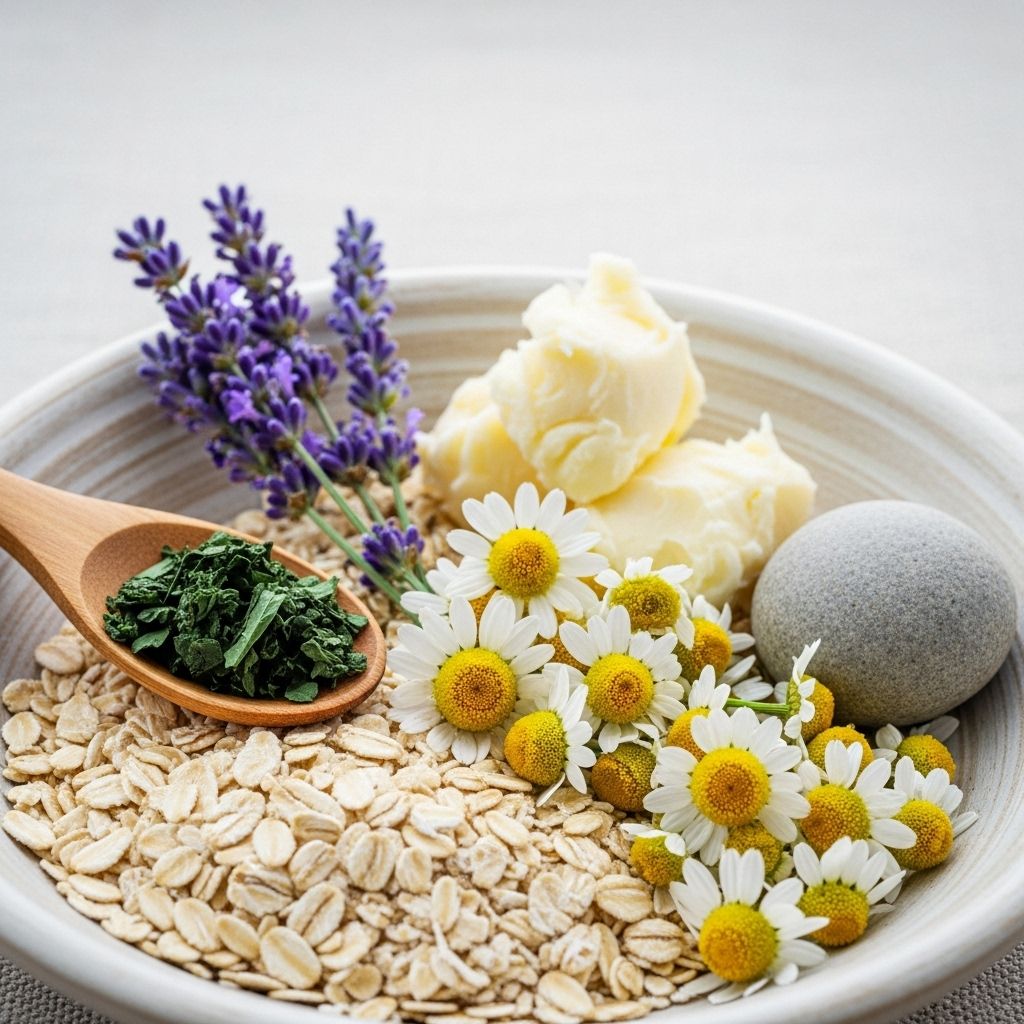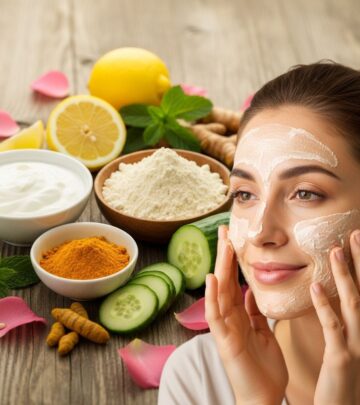Natural Remedies for Eczema: Safe Home Treatments to Soothe Irritated Skin
Discover effective, natural ways to manage eczema symptoms and restore healthy, comfortable skin at home.

Introduction
Eczema, also known as atopic dermatitis, is a chronic skin condition characterized by dry, itchy, and inflamed patches of skin. While medical treatments are available, many people seek natural remedies to complement their care and minimize reliance on medications. This article explores the most effective, evidence-based natural remedies for eczema, offering practical tips for managing symptoms at home.
Understanding Eczema
Eczema is an inflammatory skin disorder with a complex interplay of genetic, immune, and environmental factors. It often begins in childhood but can persist into adulthood. Symptoms include redness, itching, swelling, and sometimes oozing or crusting. Triggers vary but commonly include irritants, allergens, stress, and climate changes.
Why Consider Natural Remedies?
Natural remedies offer several potential benefits for eczema sufferers:
- They often contain gentle, non-irritating ingredients suitable for sensitive skin.
- Many possess anti-inflammatory, antimicrobial, or moisturizing properties that help calm flare-ups and prevent future outbreaks.
- They can be used alongside conventional treatments, reducing the need for stronger medications.
Top Natural Remedies for Eczema
Oatmeal Baths
Colloidal oatmeal is a time-tested remedy for soothing itchy, irritated skin. Oats contain compounds that reduce inflammation and restore the skin’s protective barrier.
- Add colloidal oatmeal to lukewarm bathwater and soak for 10–15 minutes.
- Pat skin dry gently, leaving it slightly damp, then apply moisturizer immediately.
- Repeat 2–3 times per week for best results.
Coconut Oil
Virgin coconut oil is rich in lauric acid, offering antimicrobial and anti-inflammatory benefits. It helps lock in moisture and supports the skin barrier.
- Apply a thin layer of virgin coconut oil to damp skin after bathing for optimal absorption.
- Always patch-test first, as some people may be sensitive to coconut oil.
Apple Cider Vinegar
Apple cider vinegar (ACV) is sometimes used for its potential antibacterial properties, but caution is advised due to its acidity.
- Always dilute ACV before use to avoid skin irritation or burns.
- Use in wet wraps or add a small amount to bathwater, but discontinue if irritation occurs.
Bleach Baths
Diluted bleach baths can reduce bacteria on the skin and ease symptoms, but should be used with care.
- Use only a small amount of household bleach in a full tub of water.
- Discontinue use if irritation or discomfort occurs.
Honey
Honey has natural antibacterial and anti-inflammatory properties, making it a potential aid for eczema-prone skin.
- Apply a thin layer of raw, medical-grade honey to affected areas, then rinse after 20–30 minutes.
- Avoid if you have a honey allergy.
Tea Tree Oil
Tea tree oil may help some due to its antimicrobial effects, but it can be irritating to sensitive skin.
- Always dilute with a carrier oil and patch-test before widespread use.
Dietary Changes
Diet plays a significant role in managing inflammation and supporting skin health.
- Increase intake of anti-inflammatory foods: fatty fish, leafy greens, beans, colorful fruits, and vegetables.
- Consider probiotics and foods rich in omega-3s and fiber to support gut health, which is linked to skin conditions.
- Reduce sugar, dairy, alcohol, and processed foods, which may exacerbate symptoms.
Lifestyle and Home Care Tips
Gentle Cleansing
Avoid harsh soaps and detergents that strip the skin of natural oils.
- Use fragrance-free, no-lather cleansers designed for sensitive skin.
- Limit baths to once or twice weekly for children, using lukewarm water.
Moisturizing
Regular moisturizing is crucial to maintaining skin hydration and preventing flare-ups.
- Apply moisturizer within three minutes of bathing to seal in moisture.
- Choose creams over lotions for thicker, longer-lasting protection.
Avoid Triggers
Identify and minimize exposure to personal eczema triggers, such as certain fabrics, stress, or environmental irritants.
- Wear soft, breathable clothing.
- Manage stress through relaxation techniques, as stress can worsen symptoms.
Cool Compresses
A cool, damp cloth can provide immediate relief from itching and inflammation.
- Apply a cool compress to itchy areas for short periods.
- Follow with moisturizer to prevent dryness.
FAQs
Q: Are natural remedies safe for children with eczema?
A: Many natural remedies, such as oatmeal baths and coconut oil, are safe for children when used as directed, but always patch-test first and consult a healthcare provider for persistent or severe symptoms.
Q: How often should I bathe if I have eczema?
A: For most children and adults with eczema, bathing once or twice a week with lukewarm water and gentle cleansers is sufficient. Over-bathing can dry out the skin.
Q: Can diet really affect eczema?
A: Yes, diet can influence inflammation and skin health. Eating anti-inflammatory foods and avoiding potential triggers may help reduce flare-ups.
Q: Should I stop my prescribed eczema medications if I use natural remedies?
A: Natural remedies can complement prescribed treatments but should not replace them without consulting your healthcare provider, especially for moderate to severe eczema.
Conclusion
Natural remedies offer a gentle, effective approach to managing eczema symptoms and supporting overall skin health. Incorporating oatmeal baths, coconut oil, dietary changes, and mindful skincare can significantly reduce itching, inflammation, and the frequency of flare-ups. Always patch-test new remedies, stay hydrated, and work with a healthcare professional to tailor a plan that meets your individual needs. With patience and consistency, natural strategies can help restore comfort and confidence to those living with eczema.
Additional Resources
- National Eczema Association for research updates and patient support
- Consult a board-certified dermatologist for personalized advice
- Explore clinical studies on complementary eczema treatments
References
- https://nationaleczema.org/blog/natural-treatments-for-eczema/
- https://pmc.ncbi.nlm.nih.gov/articles/PMC4518179/
- https://duncandermatology.com/7-natural-remedies-for-eczema-to-try/
- https://www.aad.org/public/diseases/eczema/childhood/itch-relief/home-remedies
- https://www.medicalnewstoday.com/articles/324228
- https://www.mayoclinic.org/diseases-conditions/atopic-dermatitis-eczema/diagnosis-treatment/drc-20353279
- https://www.distilleriedescevennes.com/en/blogs/eczema-psoriasis/soigner-naturellement-son-eczema
- https://www.aad.org/news/how-to-treat-eczema-at-home
- https://nationaleczema.org/treatments/complementary-alternative/
Read full bio of medha deb












